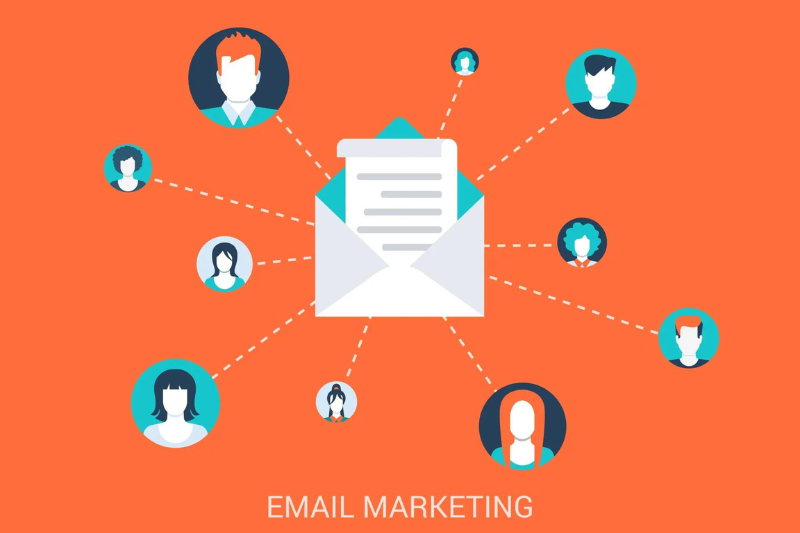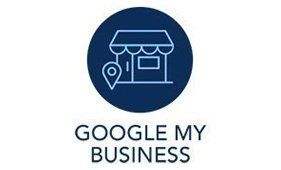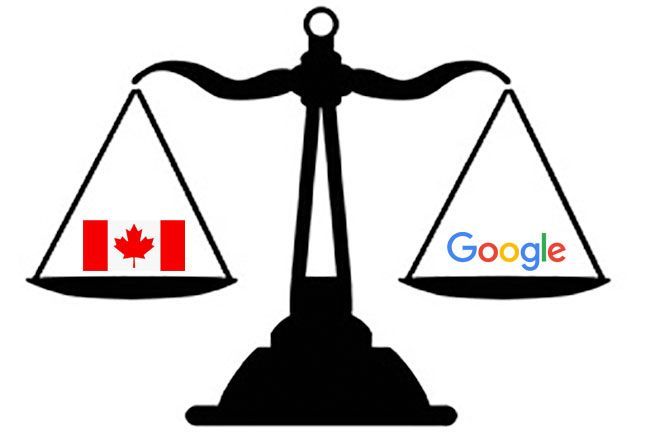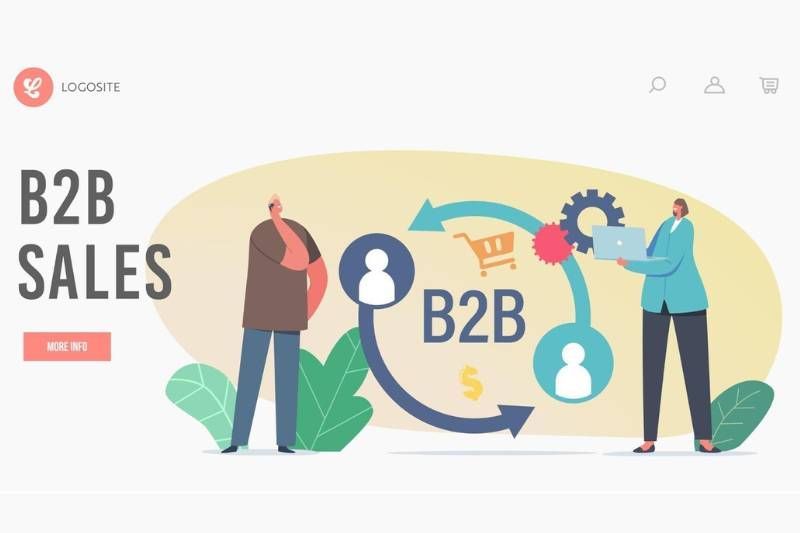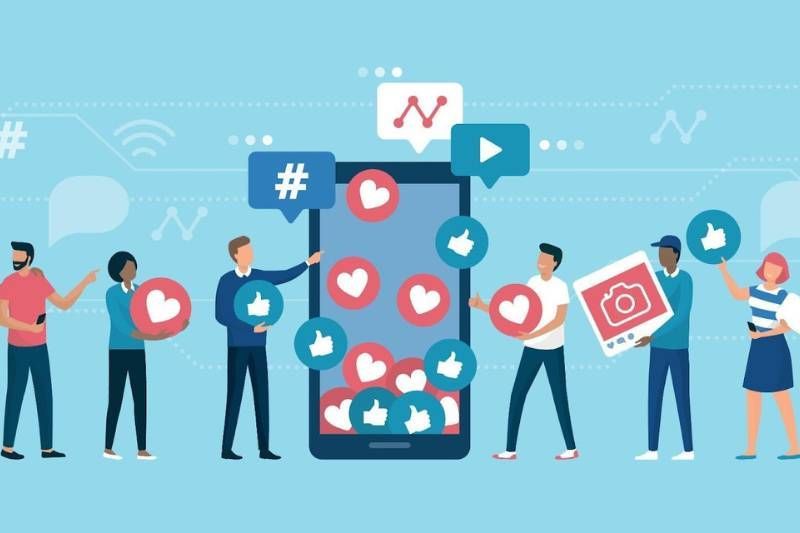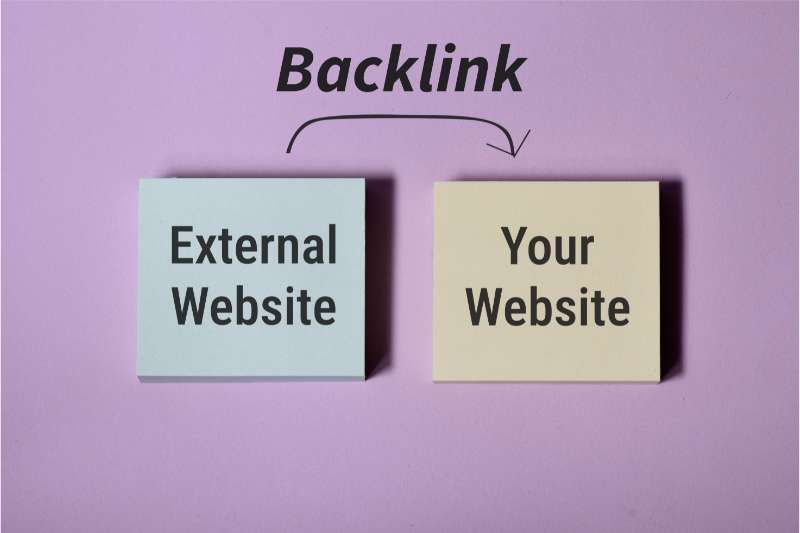How To Use Social Media For Your B2B Company
What if there were a way to use social media - Facebook, Twitter, LinkedIn, and more - to attract qualified leads for your B2B company and convert them into customers? You can do it – you just need to get the strategy right and make a consistent effort.
Consumer brands have long adopted social media to engage with their audience. However, B2B businesses can also benefit from social media in many ways, from building brand awareness and engaging with potential customers to increasing website traffic and creating relationships with key influencers. Therefore, it's an important part of B2B digital marketing, and marketers will want to make it part of their marketing strategy. In this article, you'll read about strategies that help you understand how to use social media correctly for your B2B company by targeting your audience effectively and creating meaningful content that drives conversions.
How important is social media?
Social media started in the early 2000s, and social media use has grown tremendously in the last 20 years. Consider this: the number of Facebook users is approaching 2.9Bn out of a population of about 7.9Bn people. So almost 40% of the world's population is on Facebook!
Here is an interesting overview of social media usage from
Our World in Data:
A more recent article on
Smart Insights states that almost 60% of the world's population are active social media users, and social media usage has gone up to an average daily time of nearly two-and-a-half hours per day.
Needless to say, social media has taken a very important place in our societies, and companies would therefore do well to have a clear social media marketing strategy.
What is B2B Social Media?
B2B social media is the practice of leveraging networks and platforms, such as LinkedIn, Twitter, Facebook, Instagram, and YouTube, to build relationships between businesses and customers online. It's a powerful way to engage with customers in a much more direct and personal way than is possible with traditional marketing.
To get started on your strategy, you need to clearly define who your target audience is and what they care about. Once you clearly understand who your customer base is, you can create content specifically tailored to them and publish it on relevant social networks. From there, you can create a social media campaign designed specifically for each of your goals. Social media statistics platforms such as Sprout Social help you assess how campaigns perform over time and allow you to optimize future efforts to turn leads into loyal followers (and hopefully paying customers!).
Understanding Your Buyers' Needs
The first step to using social media for your B2B company is understanding their ideal customers. It means knowing their challenges, how they consume information and how they might use social media in the first place. Most B2B buyers are looking for help with a problem, so it's important to focus on providing them with targeted content that answers their needs.
For example, you could create blog posts, videos, or webinars that offer helpful tips and advice or answer customers' questions about your industry. By providing content that solves their problems, they will recognize you as a knowledgeable authority — and find value in your product or service. Additionally, you can use social media to nurture relationships with key influencers who can lend credibility to your business.
Finally, monitoring conversations related to your industry on various social media channels will allow you to understand trends in customer interests and provide relevant resources instead of disruptive ads.
Create a social media presence on the right platforms
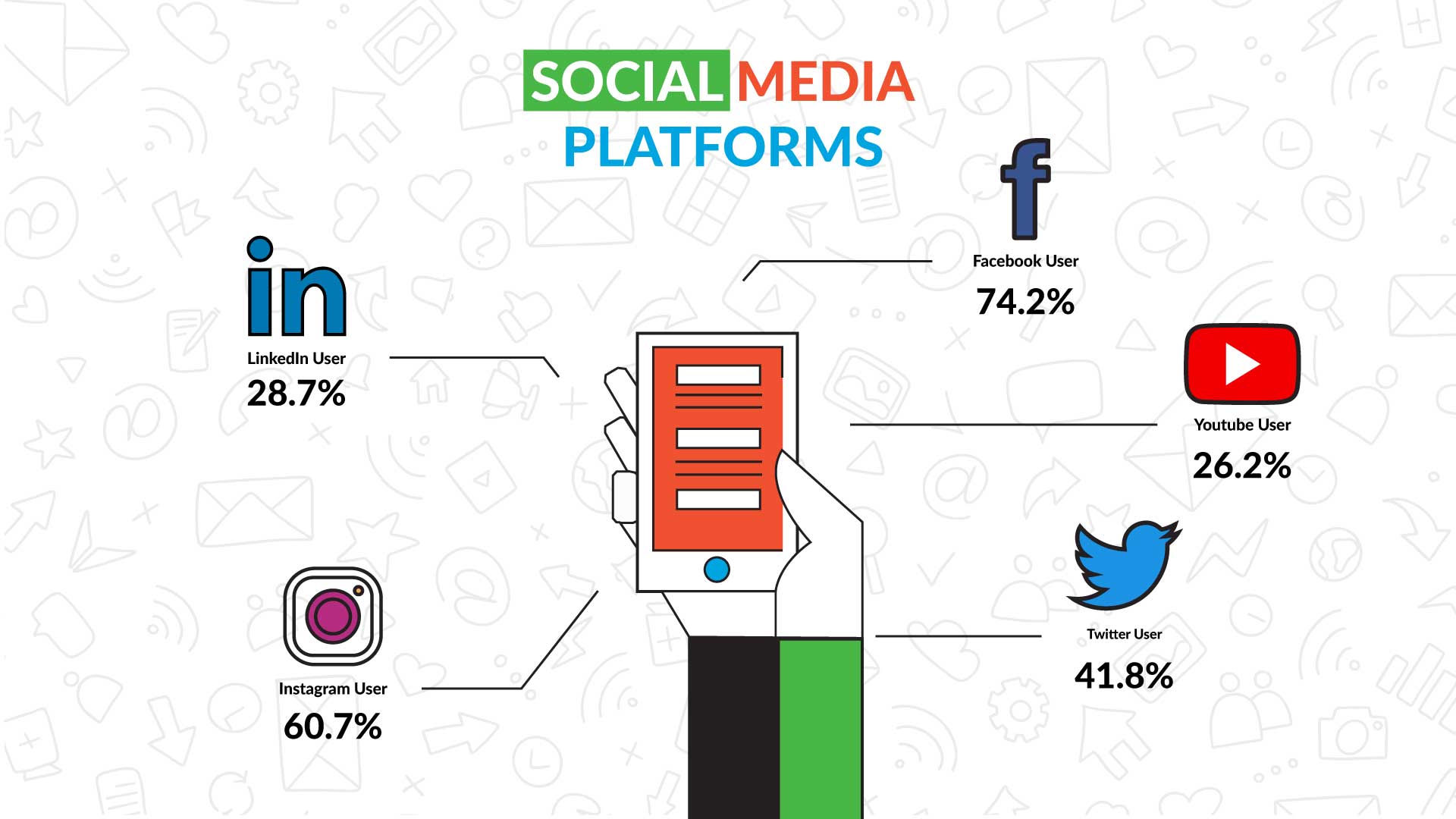
Choosing the right platforms is vital to leveraging social media for your B2B company. Consider the types of content you'll be posting, and research potential platform options to decide which will be the best fit for your business.
3 Main reasons why b2b companies should use LinkedIn
- Networking: LinkedIn is a professional networking platform that allows B2B companies to connect with potential clients, partners, industry experts, and thought leaders. This can help businesses expand their reach and build relationships with key players in their industry.
- Lead Generation: LinkedIn's advanced targeting options and powerful analytics make it an effective tool for B2B companies to generate leads and reach potential customers. It also allows creating of business pages and the posting of job opportunities, which can attract potential customers or employees.
- Branding: LinkedIn allows businesses to establish their brand and showcase their products, services, and company culture to a professional audience. Businesses can also use LinkedIn to publish articles and thought leadership pieces, which can help establish them as experts in their field
3 main reasons why b2b companies should use Instagram
- Increased Visibility: Instagram has over 1 billion monthly active users, making it a powerful tool for B2B companies to reach a wider audience and increase their visibility.
- Targeted Advertising: Instagram allows businesses to target specific demographics, interests, and behaviours, making it easier to reach the right audience for their products or services.
- Authenticity and Storytelling: Instagram's visual-first approach and features like Instagram Stories, IGTV, and Reels can help B2B companies showcase their products, services, culture and behind-the-scenes footage in an authentic and relatable way. This can create a sense of trust and connection with their target audience.
3 main reasons why b2b companies should use Facebook
- Advertising: Facebook has a massive user base and advanced targeting options, making it an effective tool for B2B companies to reach potential customers and generate leads.
- Community Building: Facebook allows businesses to create and manage groups and pages, which you can use to build and engage with a community of customers, partners, and industry experts.
- Branding: Facebook allows businesses to establish their brand and showcase their products, services, and company culture to a broad audience. Businesses can also use Facebook to publish articles, thought leadership pieces, and other content to help establish them as experts in their field.
3 main reasons why b2b companies should use YouTube
- Education and Thought Leadership: YouTube is a powerful platform for B2B companies to share educational and informative content such as tutorials, webinars, and industry insights. This can help establish a company as a thought leader in their industry and attract potential customers.
- Visibility and Reach: With over 2 billion monthly active users, YouTube provides a large audience for B2B companies to reach and increase their visibility.
- Engagement and Branding: YouTube allows businesses to engage with their audience through comments, subscriptions, and other interactive features, which can help build relationships with potential customers. It also allows companies to create a channel that showcases their brand and visual content, which can help to establish a strong brand image.
3 main reasons why b2b companies should use Twitter
- Real-time engagement: Twitter is a fast-paced, real-time social media platform that allows B2B companies to engage with customers, partners, and industry experts quickly. It's an excellent way of providing customer service and making it searchable for the next customer with the same question.
- Thought leadership: Twitter is an excellent platform for B2B companies to share industry insights, thought leadership pieces and case studies.
- Networking: Twitter allows B2B companies to connect with potential clients, partners, and industry experts, which can help businesses expand their reach and build relationships with key players in their industry. Twitter's hashtags and advanced search options make it easy to discover and join relevant conversations and communities.
Once you've found the best fit for your business from these four major platforms, create profiles that accurately represent your company and its purpose. Ensure that all posts have consistent branding across all channels to give off a professional appearance that creates trust with your customers.
Create Valuable Content
Creating valuable content is crucial. B2B companies should publish quality content that is relevant, informative, and engaging. This will drive interest in your brand and help you connect with potential customers.
When creating content, make sure to focus on topics related to your industry and incorporate current trends. Valuable content can come in many forms, including blog posts, videos, infographics, presentations, podcasts, and more.
Make sure to also engage your followers by asking questions or inviting them to join a conversation related to the content you post. This helps create relationships beyond just a simple broadcast of their message – you're taking an active role in the conversation.
By positioning yourself (or your company) as a thought leader in your industry and creating valuable content on social media platforms, you're giving potential customers a great reason to follow you.
Engage With Your Audience
Engaging with your audience is vital in B2B social media marketing. The direct and immediate communication allows you to answer their questions and help them along the customer journey.
When engaging with potential customers, try to be as helpful as possible. Show them that you understand their needs and give them helpful advice about how you can solve their problems. Ask questions about their current challenges to identify opportunities for improvement and offer insights into how your product or service can help them succeed.
Building relationships through engagement also gives prospects a better understanding of who you are and what you stand for as a business. This builds trust in your brand and customer loyalty and ultimately increases conversions.
Social Listening
Before doing anything else, it's critical to use social listening tools to monitor what people say about your company, solutions, and industry. This will help you identify relevant conversations and topics of interest and uncover insights into customer needs and pain points. You can set up alerts within many different platforms so that any time someone mentions the relevant words for your business, you can join the conversation.
Being involved in online conversations about your company and its products is essential. By tracking what people have to say about your brand, you'll get a better understanding of customer pain points and insights into what's working for them and what isn't. You can use this knowledge to improve your marketing strategy and create more engaging content. Additionally, social listening gives you real-time information on how people perceive your brand outside of regular analytics. Try setting up keyword alerts across platforms to experience all conversations around your company or industry.
By monitoring and analyzing your accounts, competitor accounts, and conversations related to relevant search terms, you better understand what matters most on social media for B2B companies. This helps you prioritize whom you need to engage with and which strategies will yield the best results in terms of lead generation.
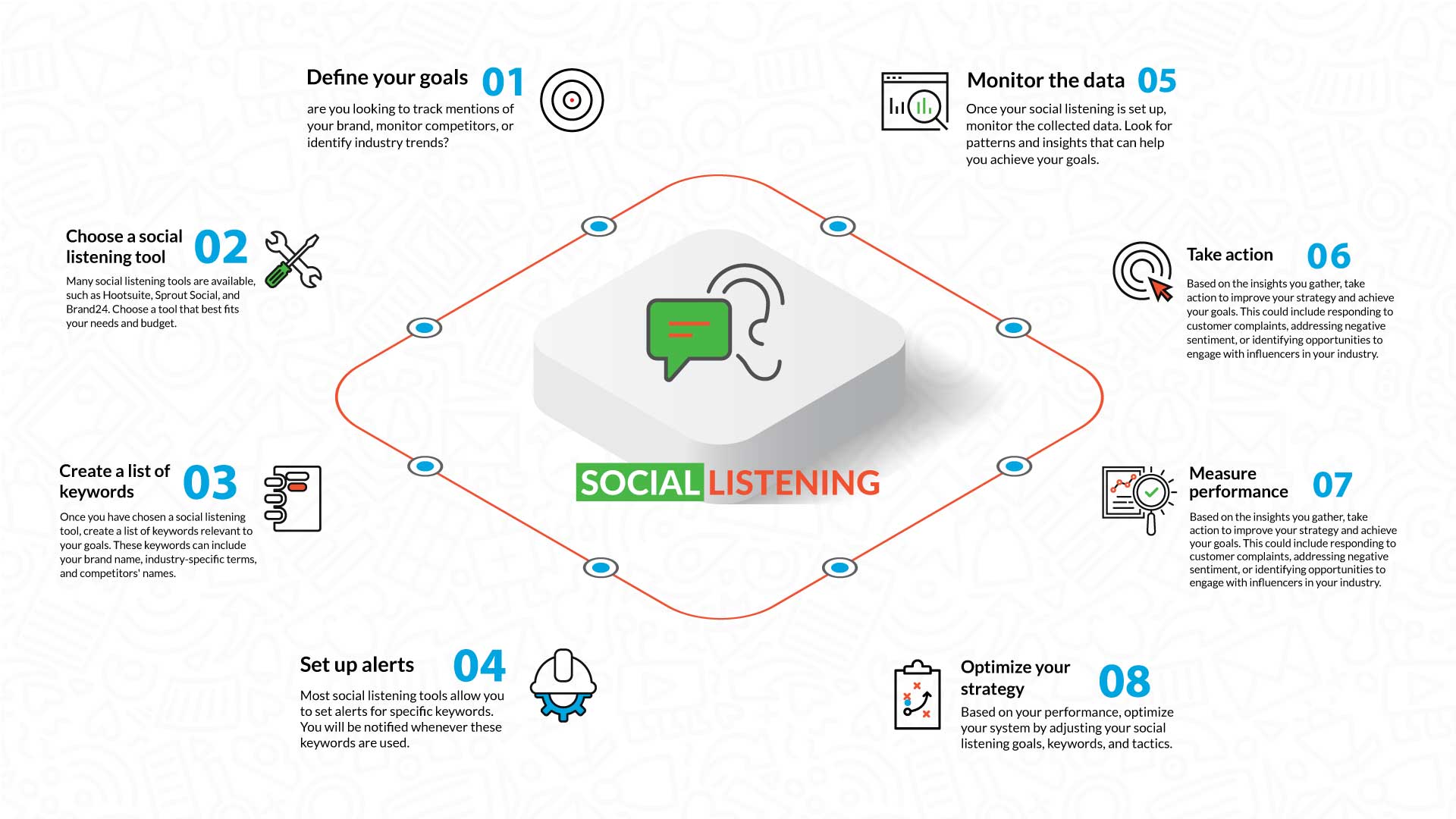
Here is a step-by-step guide to set up social listening on a social media platform
- Define your goals: are you looking to track mentions of your brand, monitor competitors, or identify industry trends?
- Choose a social listening tool: Many social listening tools are available, such as Hootsuite, Sprout Social, and Brand24. Choose a tool that best fits your needs and budget.
- Create a list of keywords: Once you have chosen a social listening tool, create a list of keywords relevant to your goals. These keywords can include your brand name, industry-specific terms, and competitors' names.
- Set up alerts: Most social listening tools allow you to set alerts for specific keywords. You will be notified whenever these keywords are used.
- Monitor the data: Once your social listening is set up, monitor the collected data. Look for patterns and insights that can help you achieve your goals.
- Take action: Based on the insights you gather, take action to improve your strategy and achieve your goals. This could include responding to customer complaints, addressing negative sentiment, or identifying opportunities to engage with influencers in your industry.
- Measure performance: Monitor your performance by tracking your social listening metrics such as reach, engagement, sentiment, and conversion rate.
- Optimize your strategy: Based on your performance, optimize your system by adjusting your social listening goals, keywords, and tactics.
Analyze Your Results
Once you've implemented your social media strategy, it's crucial to get in the habit of analyzing your results. Monitoring and tracking the performance of campaigns will help you understand what content resonates with your audience and identify potential areas of improvement that can lead to better engagement.
Some key metrics you should track include follower growth, impressions, reach, engagement rate, website traffic, and conversions. With this data, you can start gaining insights on what works, what doesn't, and where you should focus your resources (both time and money) moving forward.
You can use these insights to continuously refine your approach and ensure your message reaches the right people interested in learning more about you.
Leverage Automation and Scheduling Apps
You need to be active on social media to get the most out of it, but dedicating time to constantly checking in can take up much of your day. This is why scheduling apps are essential for any B2B company that wants to use social media for business growth.
Scheduling apps allow you to pre-build posts and schedule them for optimal performance. Apps such as Buffer will enable you to set up a publishing schedule, so your content is uploaded in bulk and released at specific times throughout the week.
Another great app is Hootsuite which automates engagement with followers and sends notifications when someone has interacted with your brand so that you can respond immediately.
Finally, remember automation tools like IFTTT (If This Then That) that let you automate tasks across various platforms (e.g., Twitter, Facebook, Pinterest). By leveraging these automation tools, you can spend more time focusing on creating meaningful content and less time manually checking in on different networks.
Stay Up To Date On New Trends
Social media is ever-evolving, and to stay ahead of the competition, your team needs to identify the latest trends and capitalize on them. You can use industry-leading publications and websites like Social Media Today or Social Media Examiner for regular updates on the current best practices around effective social media marketing for B2B businesses. Also, monitor what your competitors are doing – what works for them? What kind of reactions do their posts get? Finally, take notes so you can apply these tactics in your own way.
In addition, attend industry events as much as possible to understand better what companies in your sector are doing on social media. Finally, always keep an eye out for new tools to improve how you measure many of these key performance indicators (KPIs). Once you understand the available metrics, it opens up a whole new world of optimization opportunities!
Conclusion
The key to success with social media is providing consistent, engaging content while staying ahead of trends in the industry. Define a clear strategy, engage with customers and peers frequently and create content that resonates with your target audience.
Are you ready to start creating an impactful Social Media Strategy? Click here to request a free consultation with one of our team members!
Do you have any questions on the above, or would you like to share your experience? Just email ideas@mawazo.ca or call +1 (833) 503-0807.
At Mawazo Marketing we work with owners of B2B companies who want to accelerate their business. We help them with a concrete digital growth plan, a website that saves operational cost, and a digital marketing system that generates leads. For qualifying clients we offer a 5x ROI guarantee: if we don't reach the objective, then we pay back the difference. Book a Free Strategy Session to find out more.





